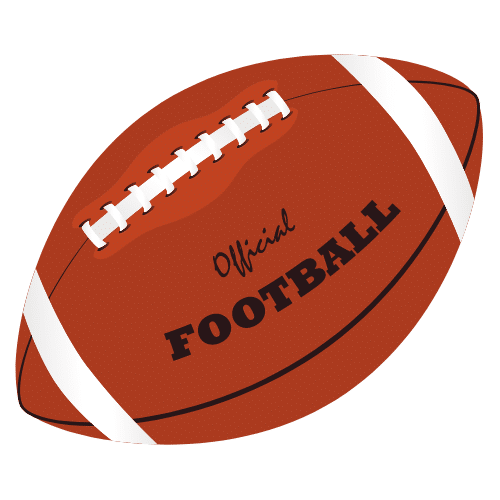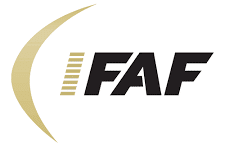FLAG FOOTBALL RULES 2023 Football Code
Introduction
The Flag Football Code is a code of ethics and should be carefully read and observed. The code is a guide to players, coaches, officials and others responsible for the benefit of the game.
Flag Football is a non-aggressive, non-contact, but still competitive sport. Fairness, sportsmanship and conduct are expected from players, coaches, officials and others associated with the game. There is no place for unfair tactics, unsportsmanlike conduct or acts that are intended to intentionally cause injury or disrespect. A coach or player who attempts to gain an advantage by deliberately circumventing or disregarding the rules is unsuitable for Flag Football.
The rule book attempts to prohibit all form of unnecessary contact, unfair tactics and unsportsmanlike conduct; however, rules cannot cover every potential situation. Only through the best efforts of coaches, players and officials, can the highest ethical standards be maintained.
Coaching Ethics
Deliberately teaching players to violate the rules is indefensible. The coaching of intentional contact, aiming or interference will break down rather than aid in the building of the character of players. Such instruction is not only unfair to opponents but is demoralizing to the players entrusted to a coach’s care and has no place in the game.
In the relationship with players under their care, the coaches should always be aware of the tremendous influence they have, both for better and worse. Coaches should never place the value of a win above that of the character and ethics of their players. The safety and welfare of their players should always be uppermost in their mind, and they must never be sacrificed for any personal prestige or selfish glory.
In teaching the game of Flag Football, the coach must realize that certain rules exist that are designed to protect the player and provide common standards for determining a winner and a loser. Any attempt to circumvent these rules, to take unfair advantage of an opponent, or acts of deliberate unsportsmanlike conduct, have no place in the game, nor has any coach guilty of teaching these any right to call themselves a coach. The coach should set the example for winning without boasting and losing without bitterness. A coach who conducts themselves according to these principles need have no fear of failure, for in the final analysis, the success of a coach can be measured in terms of the respect they have earned from their players and their opponents.
Sportsmanship
A player or coach who intentionally violates a rule is guilty of unfair play and unsportsmanlike conduct and whether or not they escape being penalized, they bring discredit to the good name of the game. Players, coaches and officials should emphasize the elimination of initiating contact against an opponent.
Feigning an injury for any reason is unethical. An injured player must be given full protection under the rules, but feigning injury is dishonest, unsportsmanlike and contrary to the spirit of the rules. Talking to a teammate, opponent or official in any manner that is demeaning, vulgar, abusive or "trashy" or intended to incite a physical response or verbally put an opponent down is illegal.
Coaches are urged to discuss this conduct frequently and support all officials’ actions to control it. When officials impose a penalty or make a decision, they are simply doing their duty as they see it. They are on the field to uphold the integrity of the game of Flag Football and their decisions are final and conclusive and should be accepted by players and coaches.
To address uncomplimentary remarks to any official during the game, or to engage in conduct that might incite players or spectators against the officials is a violation of the rules and must be considered conduct unworthy of any participant in the sport.
Principles
The most important principle of the rules is to avoid any significant and impactful contact. The first important aspect of this principle is to make the flags an easy target. The runner is restricted from using anything other than legal flags and legal tactics (e.g. spinning) to restrict an opponent's access to their flags. In return the flag puller must take all reasonable steps to minimize contact during the act of removing the flag from an opponent. The second important aspect of this principle is right of place and right of way, which determine who is charged with avoiding contact. As a general rule, priority is given to the offense up to the point before the ball is passed or handed off and to the defense thereafter. Conversely, the responsibility to avoid contact lies with the opposing player.
Some other principles are:
A blitzer sacrifices their stance by raising one hand in order to be given right of way. The offense should calculate the blitzer’s lane in order to give them right of way and avoid to interfering with them. The runner has to calculate the defender’s action in order to avoid contact. Limitations to backwards passes are in place to avoid playing a game similar to Rugby. Penalties and their enforcement are not perfect. It is a balance between practical simplicity and fair perfection.
Equipment
Gaining an advantage by using wide pants or camouflaging flags is unfair. Using pants with stripes or different colors, or flags which do not contrast clearly with the player’s pants, disadvantages the opponent. Any attempt to gain an advantage by using illegal equipment shall be penalized by the officials and coaches and players should be aware of how this reflects on their character.
A team with perfect equipment (jerseys, pants and flags) by rule should be respected more than one which sacrifices adherence to the rules for the sake of aesthetics.
Right of way
Right of way (and right of place) is established to give both sides the possibility to play a fair game and avoid unnecessary contact. This right should not be abused in order to provoke contact, or by aiming at an opponent forcing them to react, or by intentionally restricting the room an opponent has to move as permitted by rule. Avoiding interference with the legal actions of an opponent is demanded and expected. Intentionally contacting an opponent, even with right of way, will be penalized.
Drugs
The use of non-therapeutic drugs is not in keeping with the aims and purposes of amateur athletics and is prohibited.
Under no circumstances should a coach authorize the use of drugs by players or other personnel under their control. Medicines, stimulants or other drugs should be used only when authorized and supervised by a physician. Coaches should be aware that willful ignorance of drug abuse by players will be interpreted as support. Coaches are required to be familiar with and implement the current IFAF policy on drugs.



